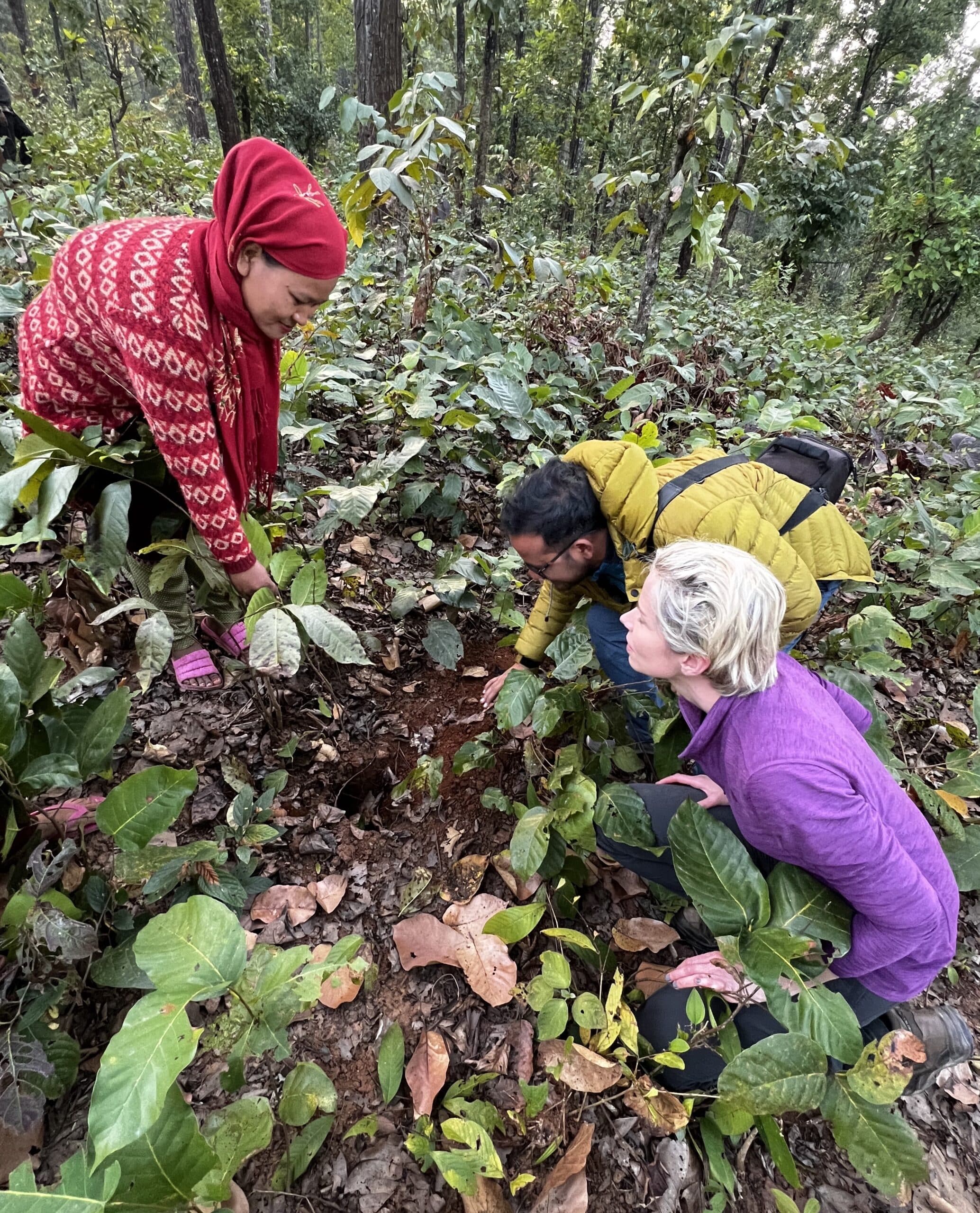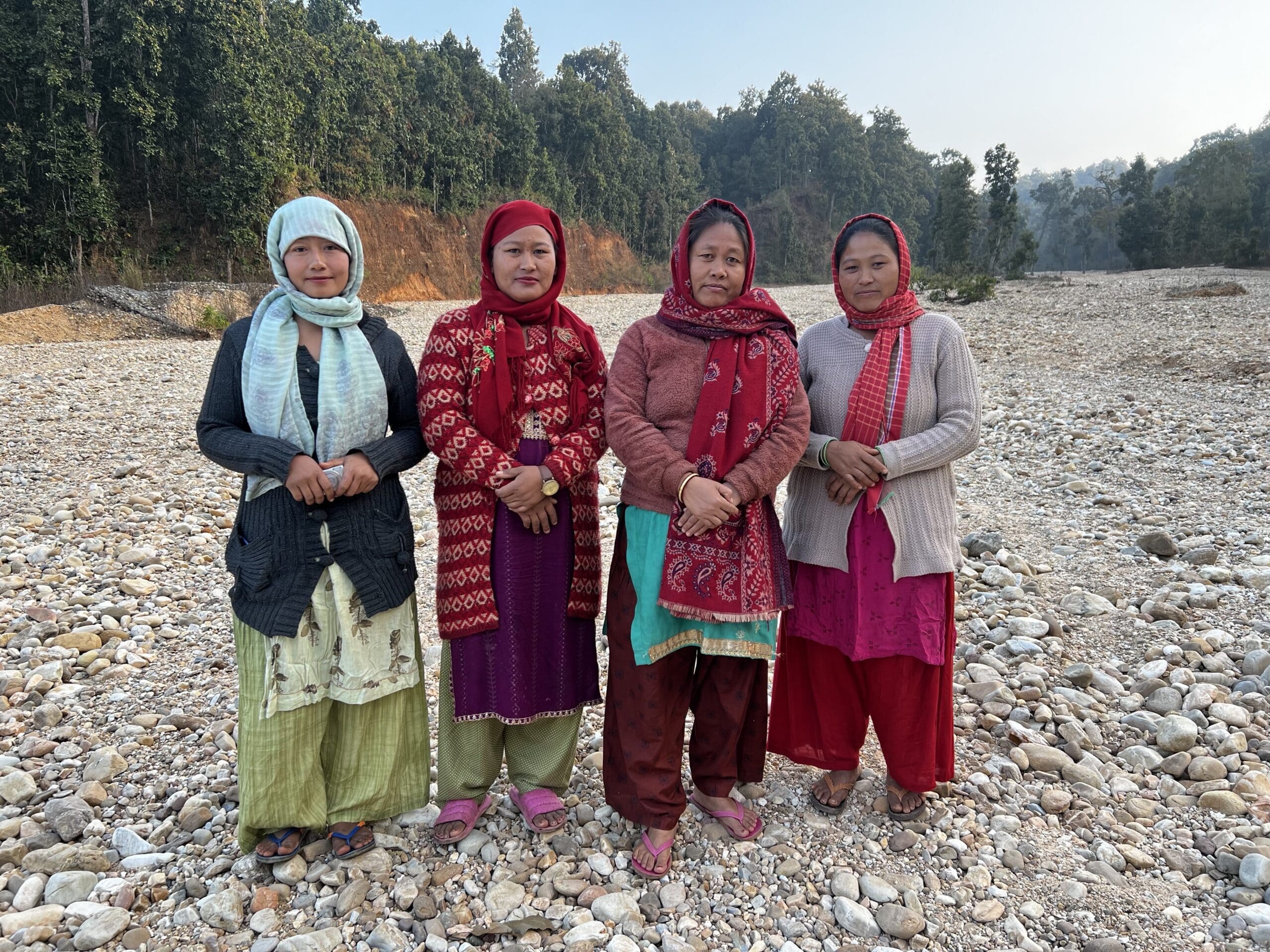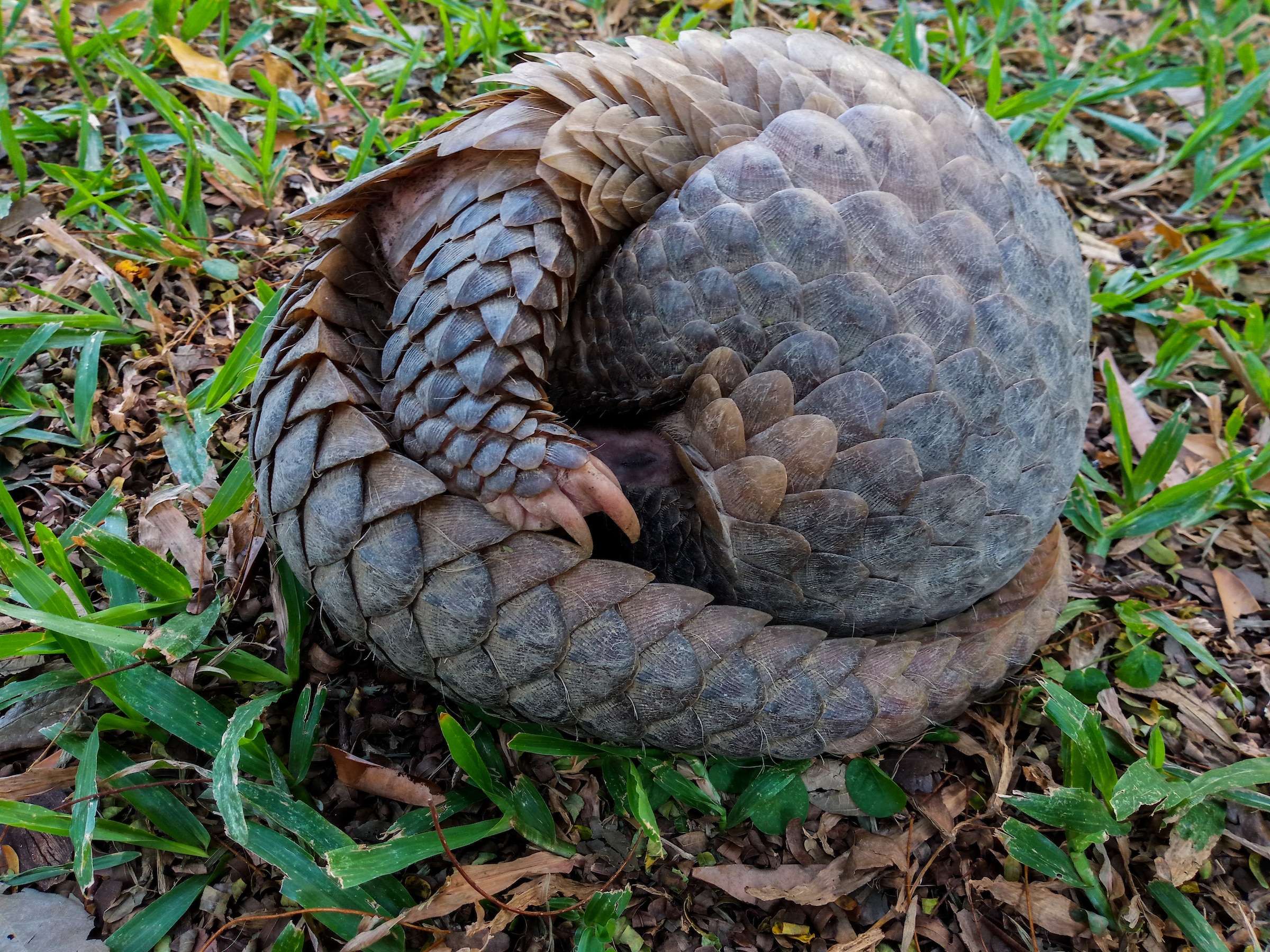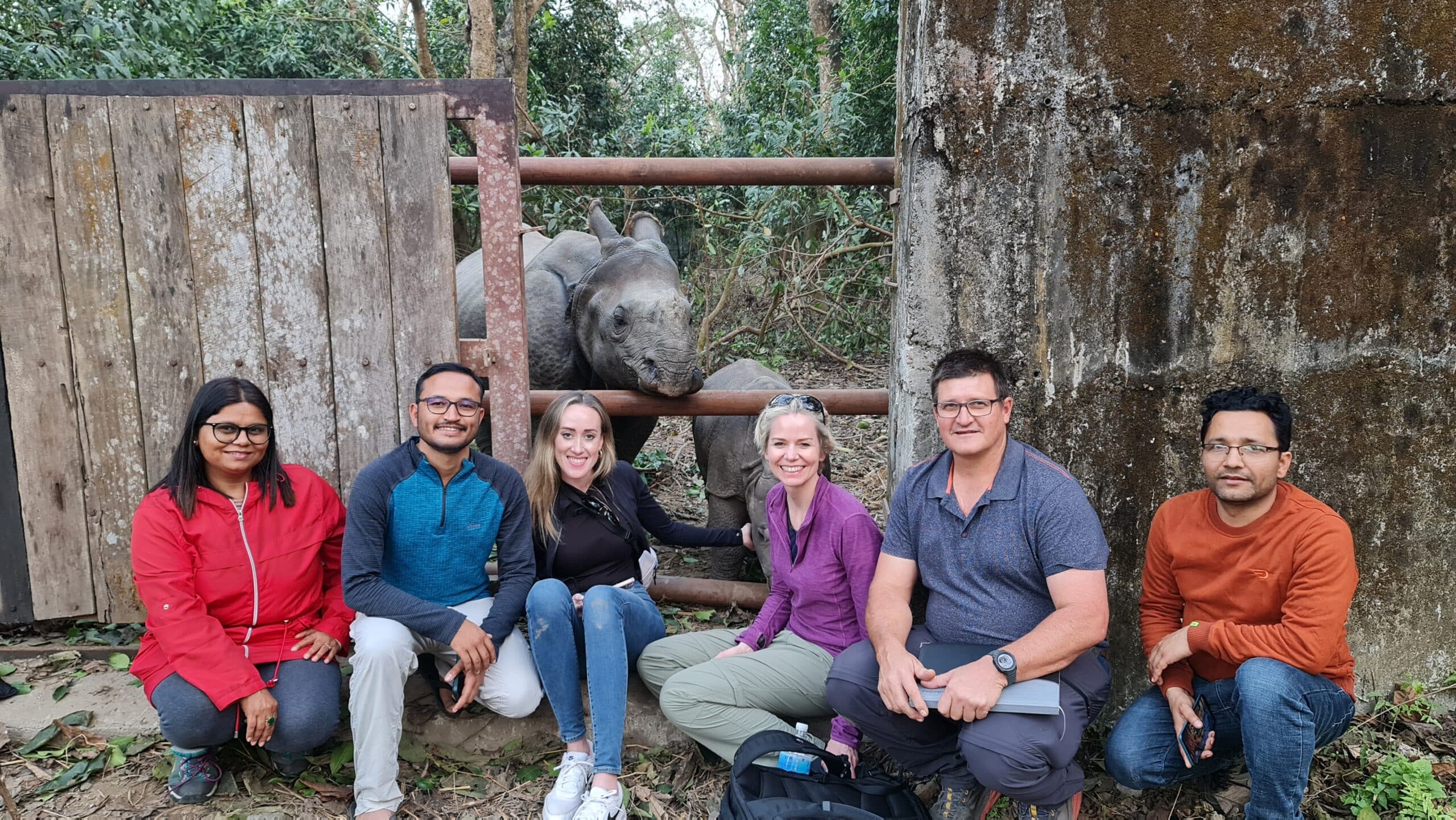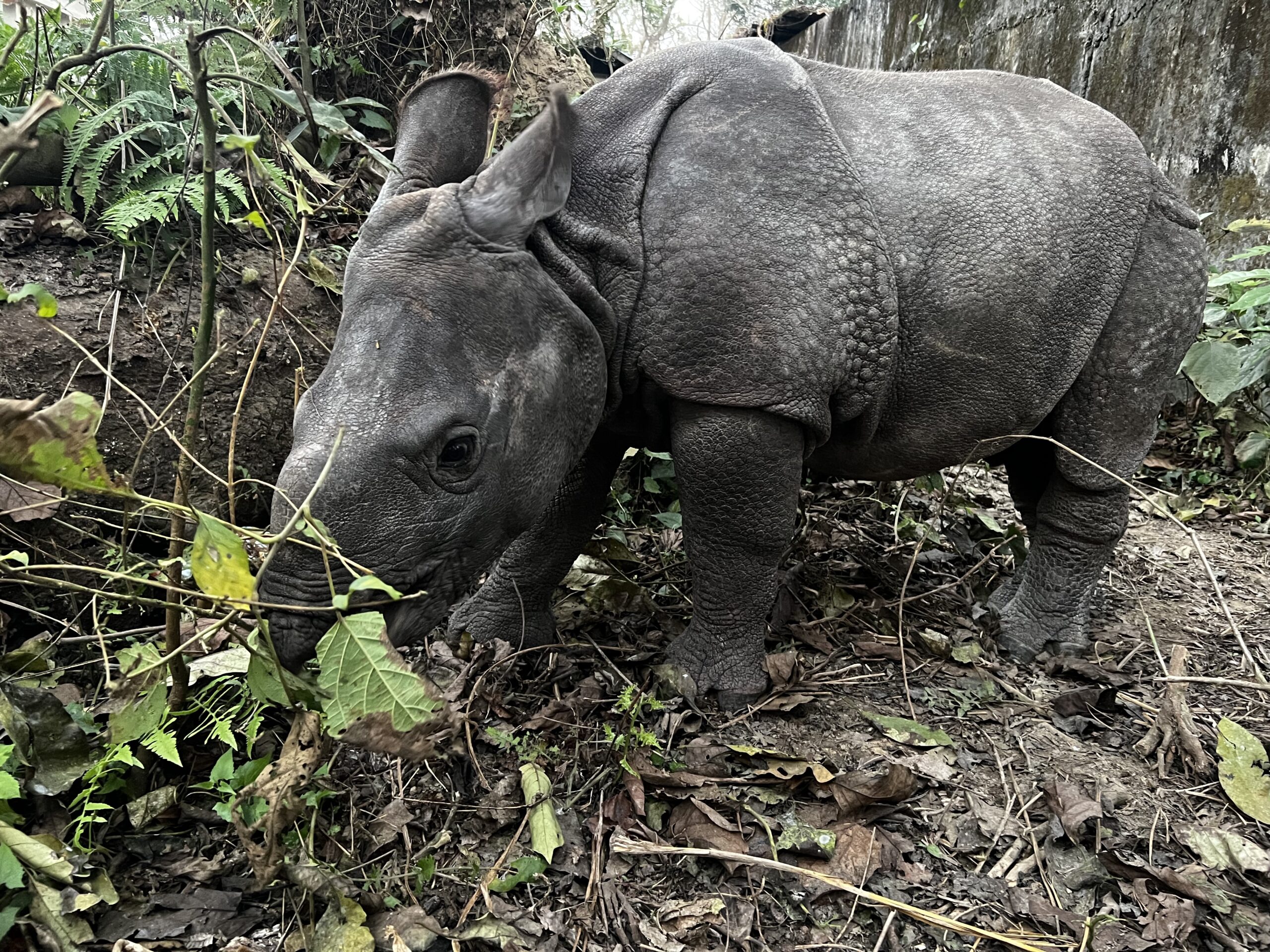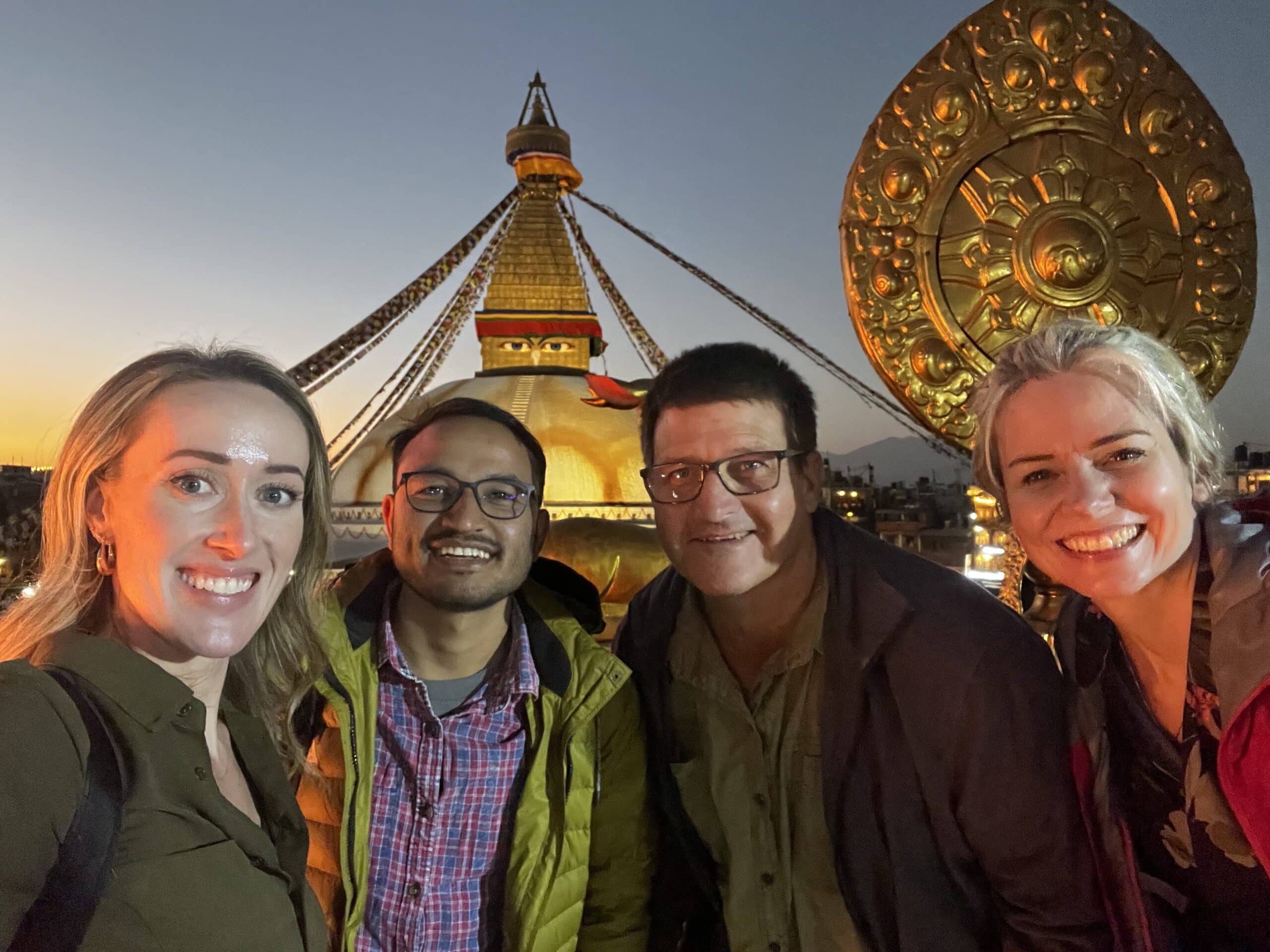Earlier this year, WCN launched a cross-Fund field visit to Nepal. Azza Schunmann and Markus Hofmeyr, Directors of the Pangolin Crisis Fund (PCF) and Rhino Recovery Fund (RRF), respectively, as well as Kaitlin Tillett, WCN’s Senior Digital Marketing Manager, met with Greenhood Nepal, a grantee of both the PCF and the RRF. Greenhood Nepal introduced them to local authorities and communities to better understand how to address challenges to pangolin conservation. This trip was also an opportunity for Markus to engage with rhino conservation NGOs in Nepal, where greater one-horned rhinos can be found.
Greenhood Nepal has been a PCF grantee since August 2022, focusing primarily on helping develop policy, community engagement, research, and awareness to protect Chinese pangolins. With their PCF grant, Greenhood Nepal’s pangolin conservation efforts are centered in and around the large Chitwan-Parsa complex. Recently, the RRF began supporting Greenhood Nepal as well for their efforts to help the Nepalese government protect over 750 greater one-horned rhinos in Chitwan National Park.
Kumar Paudel, who founded Greenhood Nepal over a decade ago, has many connections with important authorities and escorted the trio throughout their trip to make introductions. After meeting with Greenhood Nepal’s team in Kathmandu, Markus, Azza, and Kaitlin joined Kumar through the Himalayas into the Chitwan-Parsa complex. They met with the divisional forest officer of the Makawanpur District, located within the Chitwan Valley, who exudes great passion for pangolin conservation and helps plan World Pangolin Day activities with Greenhood Nepal each year. He also introduced them to Nepal’s Director General of the Department of National Parks and Wildlife Conservation, as well as a coordinator from the South Asia Wildlife Enforcement Network.
After meeting with high level officials, Kumar brought Markus, Azza, and Kaitlin into Chitwan to meet with three local communities. Through their talks with these communities, it became clear that they all share the same needs in order to continue contributing to conservation efforts—alternative livelihood support to steer them away from activities that might harm pangolins, rhinos, and their habitats; help mitigating conflict with wildlife, such as tigers, that live within Chitwan; financial support for both pangolin monitoring and anti-poaching work; help raising awareness within Indigenous communities about how endangered pangolins are.
The RRF and the PCF both make community investment a priority when granting to conservation groups, as local communities that live alongside wildlife have the best chance of helping conservation succeed. Greenhood Nepal is one such organization. Their entire team is Nepali, including some staff who come from Indigenous communities, so they are very sensitive to and supportive of the needs of local communities. Before he founded Greenhood Nepal, Kumar would go to prisons to interview people arrested for poaching wildlife, including rhinos and pangolins. He discovered that many hailed from Indigenous communities, and they didn’t understand that pangolins were so endangered, why they shouldn’t be hunted, and that it was illegal to hunt certain animals. Addressing this issue became a core tenet of Greenhood Nepal’s mission, so that local communities could aid in protecting wildlife while improving their own quality of life.
When they were finished meeting with these communities, Markus, Azza, and Kaitlin were then taken to meet several NGOs working to protect greater one-horned rhinos. One organization, the National Trust for Nature Conservation (NTNC), provides support to community projects near parks and protected areas and has an active veterinary program to address rhino health concerns. NTNC also has three orphaned rhinos in their care, which will be rehabilitated and returned to the wild with RRF support. NTNC is also supporting the investigation of a rhino poaching incident involving electrocution that occurred in Chitwan recently; this method of poaching is unseen in Africa, and it appears the criminals employed this technique so as not to alert authorities with the sound of rifles.
Markus went on to join NTNC’s Dr. Babu Ram Lamichhane on a field visit within Chitwan National Park to inspect rhino habitat improvements. He then attended a meeting held by the IUCN Asian Rhino Specialist Group within the park, which discussed the current status of greater one-horned, Sumatran, and Javan rhinos throughout India, Nepal, Bhutan, and Indonesia. Thanks to continuous and effective measures by local NGOs and the governments of Nepal and India, greater one-horned rhino numbers are increasing; they’re even beginning to venture farther into Bhutan. Javan rhino numbers remain stable, while Sumatran rhinos are declining and in need of the most support.
At the meeting, Markus gave a presentation about lessons learned from rhino management case studies in Africa, particularly in regard to capture techniques and relocation logistics, which could be imparted to similar rhino conservation programs in Asia. He then was honored with an invitation to officially join the group, given his extensive knowledge and expertise as a rhino specialist and veterinarian. Markus accepted, making him a member of both the IUCN Asian and African Rhino Specialist Groups.
As their trip to Nepal came to a close, the RRF awarded two new grants for rhino conservation in Nepal—the first to Greenhood Nepal to continue spreading the word about protecting greater one-horned rhinos, and the second to NTNC to aid in their rewilding efforts for the three orphaned rhinos and stewardship programs with Chitwan communities. These visits to the field to meet directly with RRF and PCF grantees allows our Wildlife Funds to not only better assess the impact of grants and where more help is needed, but further build unity and encourage continued collaboration between all stakeholders in rhino and pangolin conservation.


